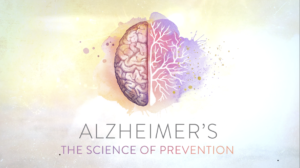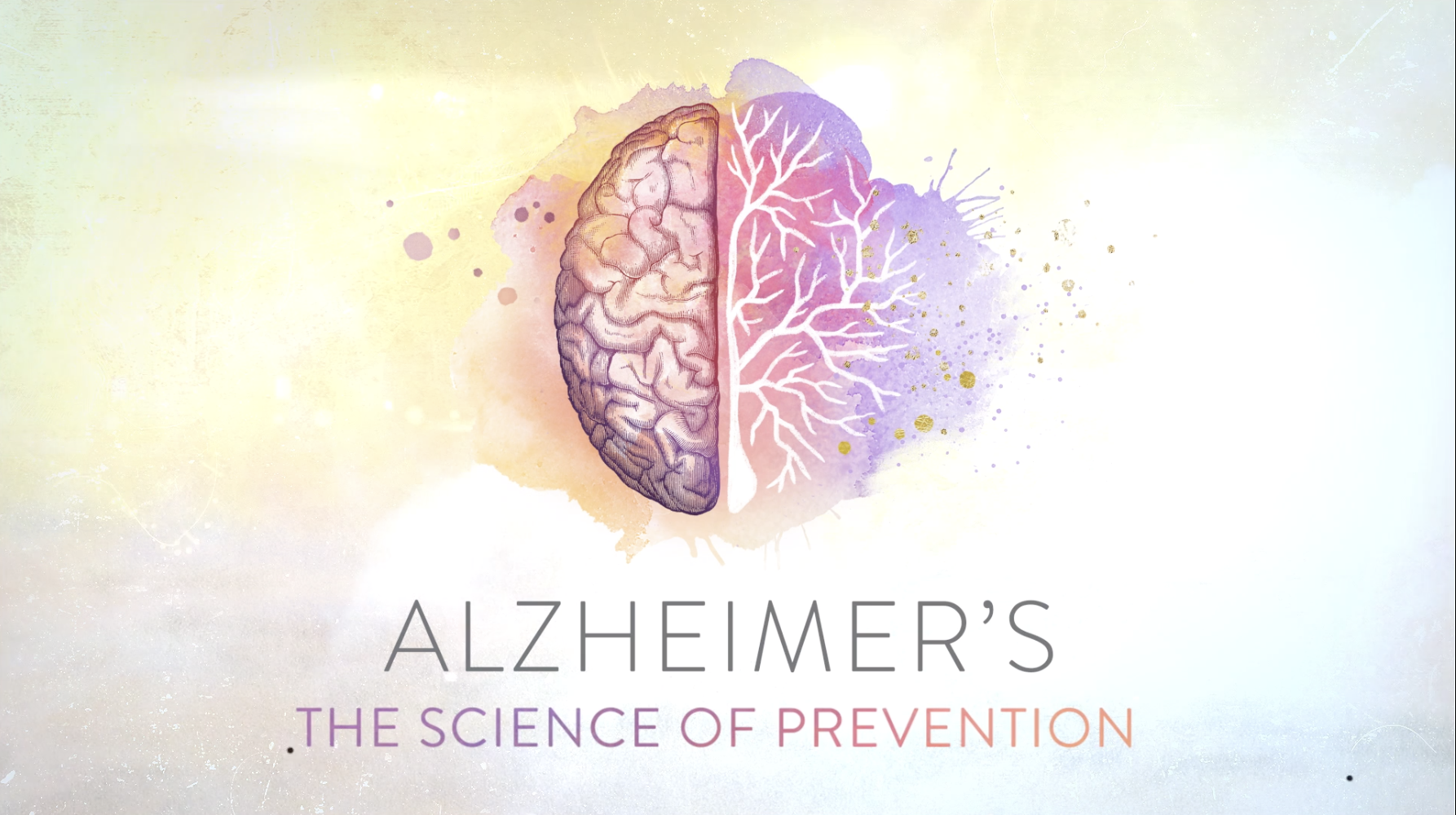This is from today’s episode of “Alzheimer’s: The Science of Prevention” hosted by David Perlmutter, MD.
You can sign up for free to view the series here:
There is a new episode every day!
The best research suggests that many of the risk factors for Alzheimer’s are within our control.
When it comes to Alzheimer’s disease there are many risk factors to consider:
- If you have type 2 diabetes, your risk of developing Alzheimer’s more than doubles
- Women are more likely to develop Alzheimer’s at a ratio of 2:1
- Being overweight significantly increases risk
- Living to age 85 today means you have a 50% risk of developing Alzheimer’s
- Low grade chronic inflammation increases risk
Since age is the most predominant risk factor can be looked at in two ways according to Jeffrey Bland, PhD. He distinguishes your “age in birthdays” from your “biological age.” And how we now have the metrics which can measure your biological age, and it has to do with the amount of damage that your immune system sustains throughout your life.
Ayesha Sherzai, MD, MAS, from Loma Linda points out the relationship of gender to Alzheimer’s disease. She points out that “women are at the center of this disease”:
- 1 out of 6 women will develop the disease during their lifetime, as opposed to 1 out of 11 men.
- Two-thirds of all patients currently living with Alzheimer’s disease are women.
- Two-thirds of all caregivers of Alzheimer’s patients are women, as well.
- Hormones may play a role with respect to the timing of menopause which is a risk factor, as well.
Dean Sherzai, MD, PhD, MPH also from Loma Linda points out the effects this has on the caregivers. He states evidence shows that caregivers die 60% faster and the partner of those with dementia have a 600% higher chance of developing dementia themselves.
There are many tests to consider, such as genetic testing, blood sugar testing and inflammation testing. All of those can be put together into a portfolio to assess risk.
Making the diagnosis requires more sophisticated testing of cognitive function. Memory loss is, of course, one of the predominant features, but is not the only criterion. There are also problems with attention, language, remembering names, and loss of executive functions such as multitasking.
Current standard of care for therapy in terms of medications such as Aricept (donepezil) and Namenda (memantine), may manage the symptoms of the disease, but do not appear to make an impact on the disease process, according to David Perlmutter, MD. What’s worse, is that some evidence points to the possibility they may hasten the decline. This latter point was also reiterated by Dr. Dale Bredesen. However, the study was not designed to determine those differences, so the findings are not conclusive. What is clear, however, is that the drugs are not a significant improvement and do not improve the underlying illness.
Amyloid, the protein found at high levels in the brains of some patients with Alzheimer’s has the target of many therapeutics. Unfortunately, all of them have ended in failure to improve the course of the disease. Why? Dr. Bredesen explains how he envisions the disease. To paraphrase, he states that it’s like having “36 holes in your roof.” He goes on to point out that “one drug may be a great patch for one hole,” but what about all the rest? It’s impossible to ask one drug to do all of the things necessary to stop the progression, or reverse the course of the disease. But for right now, we do have a way to address those “36 holes” and it is with a personalized program aimed at changing:
- Inflammatory status
- Insulin resistance
- Nutrient levels
- Hormonal levels
- Trophic levels
- Toxin levels and detoxification
Dr. Perlmutter points out that with the understanding that available therapies are limited, we all need to take steps to keep cognitive function intact. “Alzheimer’s does not show up overnight.” There is a stepwise progression of cognitive decline that begins when the individual is still thinking normally. From there, it progressing to what’s called subjective cognitive impairment (SCI), and eventually further to mild cognitive impairment (MCI). An individual with the latter, MCI a “pre-demenitia”, is at high risk developing Alzheimer’s disease. This may offer us a ‘precious window’ of intervention to prevent progression, according to Max Lugavere, the NYT bestselling author of Genius Foods. Exercise has recently been endorsed by updated neurology guidelines as a preventative measure.
However, preventative lifestyle measures are given short shrift, or are just outright ignored by mainstream medicine. Why the pushback? There are studies such as the FINGER trial which showed that multi-domain lifestyle targets such as diet, exercise and brain games can prevent cognitive decline. Meanwhile, waiting for a cure from pharmaceutical companies seems like a losing proposition. They’ve spent $2 billion on over 400 studies that failed to show any benefit. And many companies have given up on finding a cure for Alzheimer’s disease.
There is a “profound amount of information” in thousands of papers over the last decade that lifestyle, including nutrition and exercise slow the progress, or actually prevent the disease, according to Dean Sherzai. That is very encouraging news!
Dr. Perlmutter sums it up well in saying “Prevention is the most prudent course of action.”
This simple concept, of prevention, is what our practice at Peak Health is all about. We work with individuals to identify their unique drivers for developing cognitive decline. We define the underlying causes of those dysfunctions using the unique and sophisticated tools of Functional Medicine. Then we apply leading edge therapeutic interventions across multiple dimensions to promote optimal health, prevent and reverse chronic illness and disease. Find out how here.


